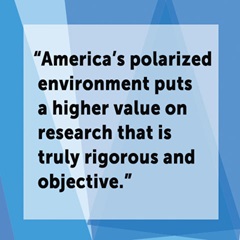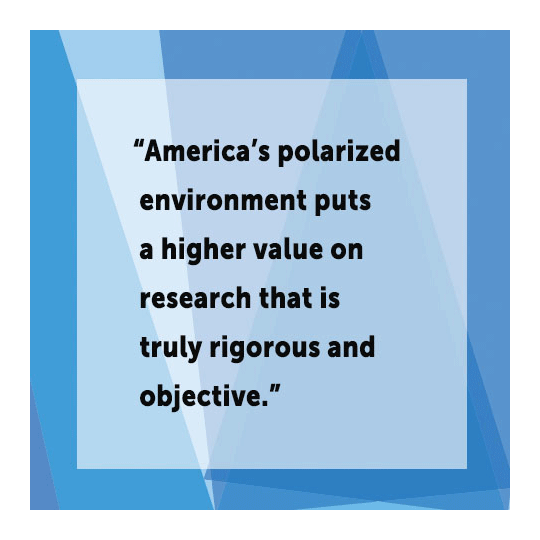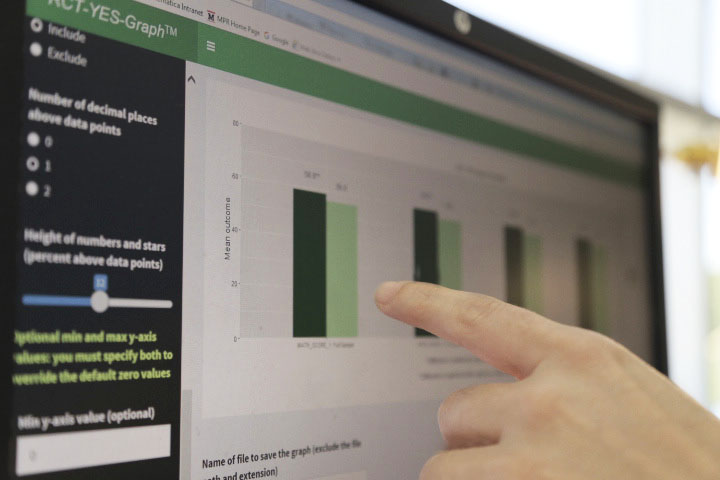Every four years we gather Mathematica’s board of directors and senior management to begin a strategic planning cycle that identifies key opportunities and challenges facing our company and our field. I was thrilled when the noted economist Peter Orszag agreed to speak at our recent meeting. Given Peter’s private-sector perch, his experience at the White House and the Congressional Budget Office, and his longstanding support for evidence-based policymaking, he was an ideal choice to provide us with perspective on where Mathematica and the field of policy research are headed.
More Investment in Evidence
It’s been nearly 50 years since Mathematica pioneered the use of a random assignment study to evaluate a major policy initiative, establishing policy research as we know it today. Where does the field stand now? I liken it to baseball: After a half century, we’re only in the top of the fourth inning in terms of progress toward full acceptance of the use of rigorous evidence in policymaking. Some lawmakers and agencies have been in the game for years. But others are still sitting on the bench.
In our discussion, Peter emphasized that investment in policy research will likely grow. Although some might fear that this country’s bitter political divisions are a barrier to evidence-based decision making, he noted that America’s polarized environment puts a higher value on research that is truly rigorous and objective.
Political and ideological considerations will always be a part of the Washington discourse, but policymakers increasingly understand that they need to be armed with evidence and analysis from nonpartisan sources to make informed, data-driven decisions. (Remember the words of the late Sen. Daniel Patrick Moynihan, who famously said, “Everyone is entitled to his own opinion, but not to his own facts.”) This trend bodes well not just for Mathematica and our peers, but also for society at large, because it will lead to more effective and efficient programs.
Merging Public and Private Data
Another key theme that Peter discussed was the need for researchers to be able to access and analyze both public and private data to get a fuller picture of the impact of programs designed to improve societal well-being. This conversation is gaining momentum here and abroad.
Peter has written about how private data can improve government decision making, noting that Princeton University economist Alan Krueger championed the idea nearly seven years ago during his time in the Treasury Department. I’ve discussed how the new era of democratized Big Data provides U.S. policymakers with unprecedented opportunities to use evidence in decision making. In the latest issue of the Journal of Policy Analysis and Management (subscription required), New York University economist Julia Lane analyzes the Big Data landscape for public policy and concludes, “It is time for new institutions to arise that can make intelligent, informed, and ethical use of all new sources of data, not just those provided by the federal government.”
If the U.S. research and policy communities are serious about improving public well-being, we shouldn’t limit ourselves by regarding government data and private-sector data as discrete sources of information. Both play important roles in understanding Americans’ health, education, employment, and other measures of well-being. The concept of integrating public and private data surely raises important technical, political, and privacy issues, but these can be addressed. One possible model is Europe’s Big Data Public-Private Partnership, in which members from government, industry, research, and academia are collaborating to explore ways to enhance data-related research and innovation.
Today, information that sheds light on public well-being is more varied and accessible than ever before. I share Peter’s view that, to ensure a better future for all, we must make the best use of this information by putting more data and analysis in the hands of those who create and manage programs serving the public good.



